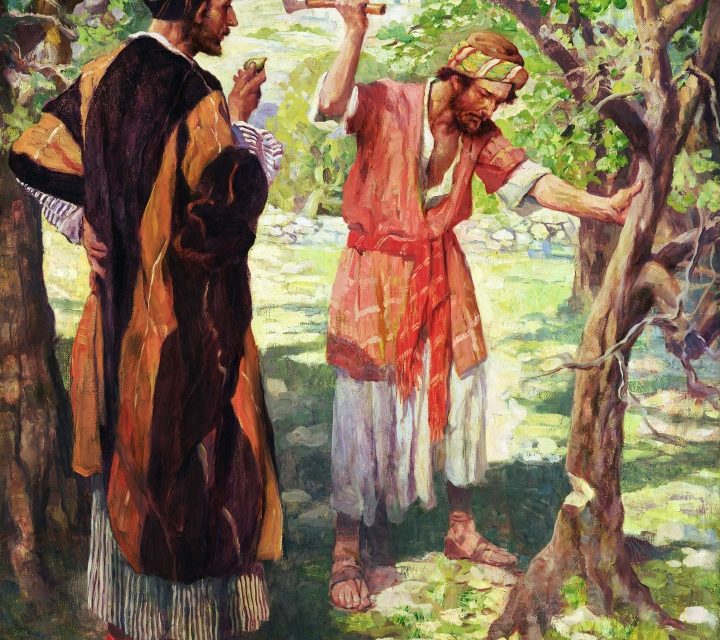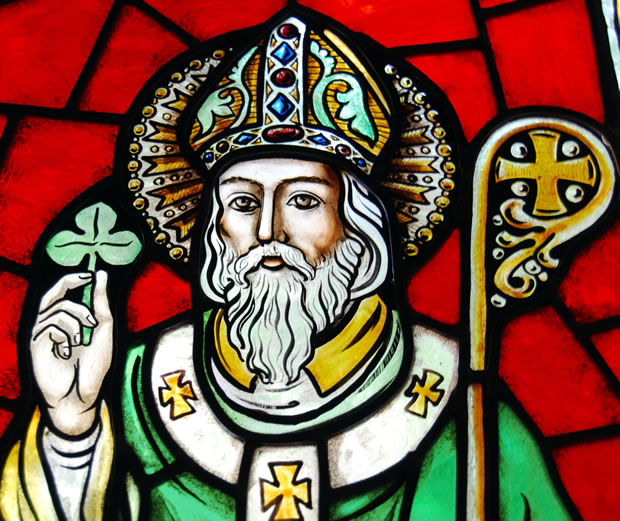“Great and long suffering is the patience of God, but yet he eventually executes judgement.”
In such a time of global political divisions and turmoils, the gospel text for the third Sunday in Lent points us to a troubling political report informing Jesus that Pilate has killed a group of Galileans. Jesus turns the ‘tables on the conversation and warns that they are the ones who risk judgement if they do not choose to act promptly. They should worry less about the sins of others and more about their own need for confession. Unless they repent, they will all perish.’ The reflection is that, it is possible to be focused on judging the lives of other people whose actions and stories are seen or told in the community of news, ‘that we avoid examining our own soul.’ Jesus’ response continue to challenge us today to examine our own hearts with a sense of urgency. Transfiguring Lent calls us to urgent repentance just as Jesus continues to call you and I to humble ourselves before God in genuine contrition.
The first part of today’s gospel text focuses on two disasters. The first has to do with the story of the Roman governor Pilate mixing the blood of eighteen Galileans with their sacrifices. The question is, ‘were they greater sinners than other Galileans?’ The expected judgement is ‘for some righteous anger directed at the oppressive governor, but Jesus turns the question on the questioners, and suggests that if they don’t repent something similar might befall them.’ The reflection is that, “… the time is come that judgement must begin at the house of God: and if it first begin at us, what shall the end of those who do not obey the gospel of God?’ (1 Pet 4:17).
Transfiguring Lent invites the church and especially a person of Christian faith to act in a way that accords with their undiluted biblical faith, confession, and profession. The second part of the gospel deals with fruit bearing. The question is, how does one’s actions and words reflect the gospel? It is on record that Pope Francis entered the political fray recently suggesting that building walls (on the Mexican-American border) isn’t a Christian act. This proved offensive to some people. In this season of Lent, the church has an opportunity to seek repentance and renewal in order to overcome the parable of the barren fig tree. With reference to the Old Testament usage of the fig tree as a metaphor for Judah and Jerusalem, the barren fig tree in Luke 13 resonates with God’s people, who are not bearing the fruit of repentance (Jer 8:13, 24:1-10, Micah 7:1, Hosea 9:10).
Culpepper’s contribution on the parable of the fig tree invites us to consider the gift of another year of life and service as an act of God’s mercy. John the Baptist declared that the ax lay at the root, poised to strike. Any tree that did not bear fruit would be cut down. In Jesus’ parable, however, the gardener pleads for and is granted one more year. Culpepper said, “What would you do if you had only a year left to live, only a short time in which to make up for wrongs done and opportunities missed? How important that year might be! The lesson of the fig tree is a challenge to live each day as a gift from God. Live each day in such a way that you will have no fear of giving an account for how you have used God’s gift.”
Transfiguring Lent reminds us that stories of judgement and repentance are very important as they were in Jesus’ time. The seductions of today’s culture continue to make the stories and preaching on repentance and judgement offensive, hence they are no more popular. Richard Jensen explained that, ‘repentance is not a fruit problem; it is a root problem. It is the root of who we are that is a problem in God’s eyes.’ According to Jensen, ‘repentance cannot be composed of “I can” statements. “I have sinned God. I am sorry God. I can do better.” Repentance, rather, must be composed of “I can’t” statements. “I have sinned, God. I am sorry. God, I’ve tried and tried and tried but I just don’t produce good fruit. I can’t seem to do better. I need your Vine-dresser to work on the roots of my life. Give me a new life, God. Give me your life. I can’t. You can.”
John Wesley’s explanation on God as the Father that “had the vineyard, and Christ by him that kept it: or Christ himself is he that hath it, and his ministers they that keep it,” helps us to understand more that the barren fig tree represents the people of God, including Jesus’ listeners, who are not bearing the fruit of repentance. Jesus, in his role as the gardener is still pleading through his presence among them, including his teachings and miraculous works. The reflection is that, time is limited. Just as a healthy plant grows outward into the light, a healthy church grows toward the Light and Jesus is the True Light. The church is on a mission. Planted in God, and as branches of and circuit of Jesus, we are called to be fruitful conduit of the divine grace into the world. Indeed, a circuit is a conduit of the divine grace into the world, home and marketplaces. Enough of the seductions of today’s world that continue to resist ‘the invasion of God; we prefer to go our own way; we cling to our own prerogatives and our own narrow freedom. And the result is lifelessness … like being “lost in a dark wood.” The barren fig-tree is the object of God’s displeasure; God cannot bear with a fruitless church or leadership. Remember, as it was for that barren fig tree, there will be an accounting.
O Lord, break and deliver the church from negligence, and too much uncircumspectness (Eze 44:7, 8, Jude 4, Eph 5:15).











Recent Comments